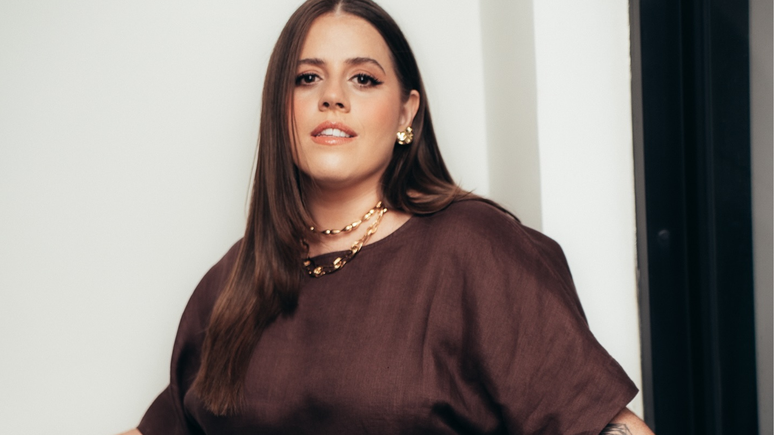What is it about?
After being promoted through ruthless methods at an investment fund, Emily (Phoebe Dinevor) and Luke’s (Alden Ehrenreich) romantic relationship takes a turn for the worse. As the balance of power in their relationship shifts forever, the lovers discover the true cost of success and the troubling limits of ambition.
Fair Game, written and directed by Chloe Domont with Phoebe Dinevor, Alden Ehrenreich, Eddie Marsan…
who is he with
An independent film that was the subject of a huge bidding war during the last Sundance festival, Fair Play offers a very nice poster with Phoebe Dinevor – Daphne Bridgerton – and Alden Ehrenreich (Solo: A Star Wars Story and Oppenheimer). They make this couple that we think is perfect, but that will break up.
Around them we see some familiar faces from the small screen. Eddie Marsan (Ray Donovan) plays Campbell, their boss with a brutal management. And among their colleagues we find Rich Sommer (Mad Men) and Sebastian de Souza, who were revealed in Skins.
Is it worth checking out?
Originally billed as an erotic thriller, Fair Game is actually an intimate drama structured like a psychological thriller. It comes to us from Chloe Domont, who has made a name for herself as a television director, most notably for Ballers, Billions, and many other series. And fair play should give him a chance to make a name for himself in cinema.
It offers a fascinating exploration of the mechanisms of power in both the marital and professional worlds, in this case high finance. Emily and Luke just got engaged. But when Emily gets the promotion Luke was hoping for, their relationship becomes strained.
This is a post #MeToo film that explores issues of physical, psychological, and sexual abuse, as well as the toxic masculinity still ingrained in Western culture and in a world where women are persistently treated as inferior to men.
Emily and Luke are keeping their romance a secret because it’s against company policy – and they’re both waiting for promotions to make their relationship public. But the fact that Emily is promoted first causes an avalanche of difficulties for the couple.
Alden Ehrenreich portrays Luke’s discomfort with his fiancée’s success with incredible truth. And he takes the time to reveal his own insecurities and his status as a man trapped by the toxic masculinity he grew up with.
Vulnerability
Following this promotion, Luke is now Emily’s analyst, working directly under her, further emphasizing her vulnerability and showing how much she has been influenced/shaped by the world around her. At first, he is a kind and supportive fiancé, especially in the opening scene of the film.
As the film explores this complicated relationship between Luke and Emily, we begin to see his true colors and his ingrained toxic thoughts about men and women take over.
Phoebe Dinevor’s character highlights the fact that women are constantly watched by their superiors and their husbands, who wait for the slightest opportunity to make a mistake and then pounce on them.
Dynevor reveals that Emily is always worrying about thirty-six things at once, that she struggles to balance the expectations that everyone has of her, including her family, and that she is never treated as if she does enough. We feel her pain and frustration, as well as the fleeting moments of happiness that are thwarted by Luke’s accomplishments.

moving dynamics
Fair Play functions as a tense exploration of sexual politics (or the battle of the sexes), particularly how they play out in the workplace. The changes we see in Luke as the film progresses are horrifyingly realistic and show how seemingly good men develop sexist tendencies over time.
After Emily’s promotion, Luke goes from being a supporter to a man weakened by a sense of threat and worthlessness in the face of her success, believing that she deserves it more than he does because he is a man and she is a woman. Ehrenreich plays these changes in Luke understatedly, dropping subtle hints even in the moments when Luke is at his most encouraging.
This is especially noticeable as Fair Play introduces Emily and Luke’s relationship, initially showing a couple in love until they both leave their houses in opposite directions, only to find themselves in the same elevator to get to work in the same open space.
In addition to how women are treated unequally in the workplace and in relationships, Fair Play also highlights the dangers of toxic masculinity and how it can infiltrate men and turn them into someone they never wanted to be. Luke begins attending a personal development seminar that is supposed to give him confidence, but in fact instills sexist, toxic ideals in him and pushes him to objectify Emily.

The film realistically portrays a relationship that crumbles when a man feels threatened by the woman’s success in life, as if it makes him less of a good man than others. We share Emily’s pain when this moment should be cause for celebration, but it makes her increasingly aware of how the world perceives women.
Fair Play does a great job of creating sympathy for Emily and Luke. We saw the person that Luke was at the beginning of the movie, but also his change in behavior. And Fair Play does a great job of showing how even trusting people can show their true colors when they feel threatened by a woman’s power and success.
The bias of the last third of the film – which we won’t divulge here – may provoke debate, but we’ll let you discover that for yourself. In any case, Fair Game is certainly a film that will not leave you indifferent…
Source: Allocine
Rose James is a Gossipify movie and series reviewer known for her in-depth analysis and unique perspective on the latest releases. With a background in film studies, she provides engaging and informative reviews, and keeps readers up to date with industry trends and emerging talents.


![It All Begins Here: What’s in store for Monday 20 October 2025 Episode 1288 [SPOILERS] It All Begins Here: What’s in store for Monday 20 October 2025 Episode 1288 [SPOILERS]](https://fr.web.img4.acsta.net/img/61/5b/615b86ae565677594436e6cf1c0294ba.jpg)



